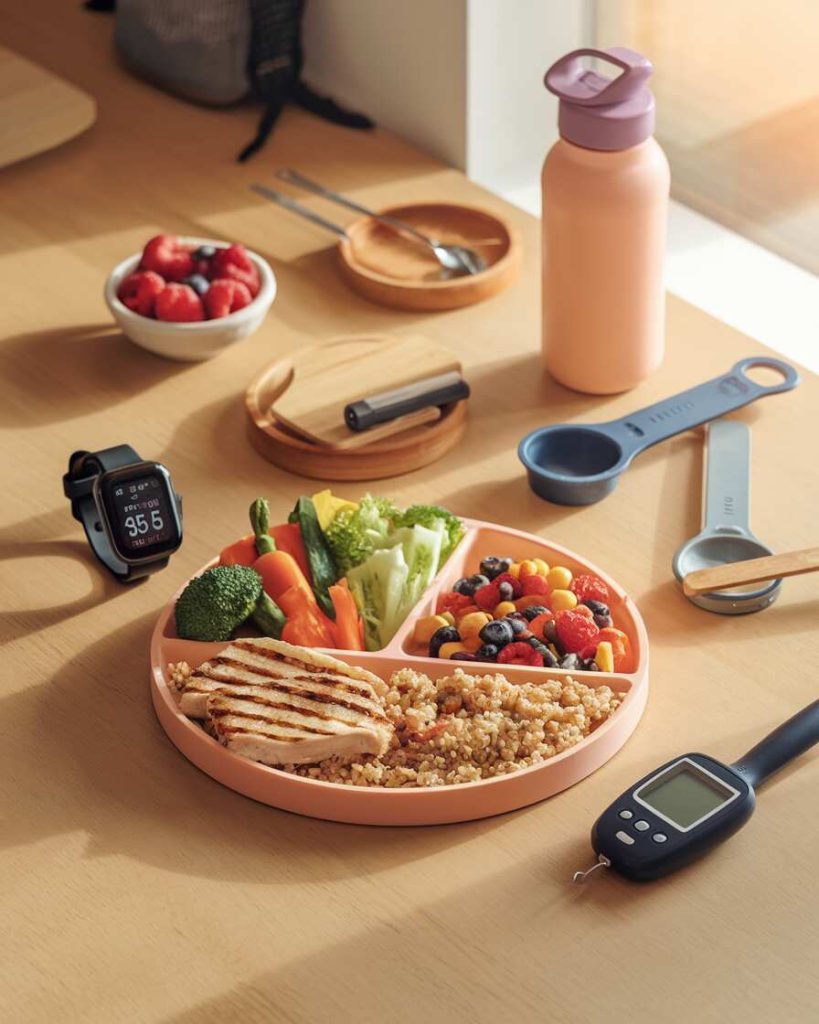When you first hear the word “diabetes,” it can feel daunting. You might wonder how it will impact your life, your diet, and your daily activities. The good news is that living well with diabetes is entirely achievable—and it starts with lifestyle changes that focus on nutrition, physical activity, and mindset. In this article, we’ll explore how these changes can help you gain better control over your blood sugar and enhance your overall quality of life.
Understanding Diabetes and Its Relationship with Lifestyle Changes
Diabetes is a chronic condition that affects how your body processes sugar (glucose). When you eat, your body breaks down carbohydrates into glucose. In people with diabetes, insulin (the hormone responsible for moving glucose from the bloodstream into the cells) doesn’t work properly, leading to high blood sugar levels. This can cause a variety of health issues if not managed effectively.
Making conscious lifestyle changes is crucial for managing diabetes. By refining your nutritional choices, bumping up your activity levels, and adopting strategies to reduce stress, you not only improve your blood sugar control but also enhance your overall well-being.
The Power of Nutrition in Diabetes Management
Choosing the Right Foods
Eat Smart: It’s not just about cutting out sugar; it’s about finding a balanced diet that keeps your blood sugar stable. Here are some essential tips:
-
- Focus on Whole Foods: Incorporate plenty of vegetables, fruits, whole grains, lean proteins, and healthy fats. These foods provide essential nutrients without causing spikes in blood sugar.
-
- Carbohydrate Counting: Understanding the amount of carbohydrates in the foods you eat is key. Each meal should ideally include a healthy mix of carbs, protein, and fats.
-
- Opt for Low Glycemic Index Foods: Foods such as legumes, whole grains, and non-starchy vegetables have a lower glycemic index (GI) and can help keep your blood sugar levels stable.
Quick Tip: Keep a food diary for a week to track what you eat and monitor how it affects your blood sugar levels. This can help you identify patterns and make informed dietary changes.
Benefits and Challenges
Benefits
-
- Improved blood sugar levels
-
- Increased energy levels
-
- Reduced risk of diabetes complications
-
- Enhanced mood and mental clarity
Challenges
-
- Meal preparation can be time-consuming
-
- Social situations may lead to temptation
-
- Adjusting to new eating habits can feel overwhelming at first
The Role of Physical Activity
Getting Moving
Exercise is another powerful tool for managing diabetes. Engaging in regular physical activity helps the body use insulin more effectively, which can lead to improved blood sugar control. Aim for at least 150 minutes of moderate-intensity aerobic exercise each week, combined with strength training on two or more days.
Step-by-Step Guide to Starting an Exercise Routine:
-
- Choose Activities You Enjoy: Whether it’s walking, cycling, dancing, or swimming, pick something you look forward to.
-
- Start Slow: If you’re new to exercise, begin with short sessions and gradually increase your duration and intensity.
-
- Incorporate Movement Throughout Your Day: Take the stairs instead of the elevator, opt for walking meetings, or try short exercise breaks during your day.
The Benefits of Exercise
-
- Helps with weight management
-
- Boosts heart health
-
- Increases stamina and energy levels
-
- Can improve mood and reduce stress
Mindfulness and Stress Management
Living with diabetes can be stressful, and stress can affect blood sugar levels. Incorporating mindfulness and relaxation techniques can help. Here are some strategies to consider:
-
- Practice Deep Breathing or Meditation: Just a few minutes each day can help center you and reduce stress levels.
-
- Get sufficient sleep: Aim for 7-9 hours each night, as poor sleep can negatively impact blood sugar control.
Did You Know? Research shows that mindfulness-based interventions can significantly lower blood sugar levels in individuals with diabetes, making it a valuable addition to your routine.
FAQ: Common Questions About Diabetes Management
Q: Can I still eat sweets if I have diabetes?
A: Yes! Moderation is key. You can enjoy sweets occasionally by incorporating them into your meal plan and balancing them with healthy foods.
Q: How can I handle cravings?
A: When cravings hit, try drinking a glass of water, distracting yourself with an activity, or opting for a healthy snack like fruit or nuts.
Q: Is it necessary to count calories?
A: While calorie counting isn’t essential for everyone, understanding portion sizes and making healthier food choices is crucial in managing diabetes.
A Journey Worth Taking
Making lifestyle changes when managing diabetes can feel overwhelming at times. However, the journey is rewarding and worth taking. Set small, achievable goals, celebrate your successes, and remind yourself that every step counts.
In conclusion, living well with diabetes is possible through a combination of smart nutrition, regular exercise, and effective stress management strategies. By prioritizing your health, you’re not just managing diabetes—you’re investing in a vibrant, fulfilling life.
So why wait? Start making those changes today! You have the power to take control of your health and live well with diabetes. Now is the time to embrace a lifestyle that embraces all the good things in life while nurturing your health.

